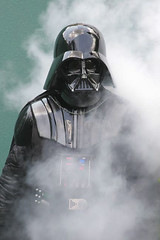| 9855096233 | antagonist | Character that is a source of conflict. (The opponent or enemy of the main character, or protagonist.) |  | 0 |
| 9855096234 | protagonist | the character that is trying to solve the problem of the story |  | 1 |
| 9855096235 | figurative language | language that represents one thing in terms of something dissimilar(not like itself): simile, metaphor, hyperbole, personification, and symbols are figurative language |  | 2 |
| 9855096236 | irony | the difference between reality and perception | 3 | |
| 9855096237 | dramatic irony | when the reader or audience knows something a character does not | 4 | |
| 9855096238 | situational irony | when there is a disparity between what is expected and what actually occurs (When something happens that is the reverse of what you expected.) | 5 | |
| 9855096239 | verbal irony | When a speaker says one thing but means the opposite. (When the name or description of something implies the opposite of the truth. For example: calling a very tall person "Tiny.") |  | 6 |
| 9855096240 | personification | figure of speech in which non-human things are given human characteristics. (ex: The flowers held their heads sadly toward the ground after the heavy rain.) | 7 | |
| 9855096241 | plot | The sequence of events in a literary work |  | 8 |
| 9855096242 | climax | The turning point in a literary work. (The point in a play, novel, short story, or narrative poem at which the conflict reaches its greatest intensity and is then resolved.) |  | 9 |
| 9855096243 | setting | the time and place of a literary work (story) |  | 10 |
| 9855096244 | theme | The underlying main idea of a literary work (A story's main message or moral.) |  | 11 |
| 9855096245 | alliteration | repetition of the initial consonant sound of words ex. "Peter Piper picked a peck of pickled peppers." | 12 | |
| 9855096246 | allusion | a reference to something well-known that exists outside the literary work | 13 | |
| 9855096247 | diction | word choice to create a specific effect | 14 | |
| 9855096248 | simile | the direct comparison of dissimilar objects, usually USING "like" or "as" ex. I wondered lonely as a cloud. |  | 15 |
| 9855096249 | metaphor | The comparison between two different things without using the words "like" or "as." ex: She is a brick house. |  | 16 |
| 9855096250 | implied metaphor | a comparison between dissimilar object WITHOUT directly stated the two things to be compared ex. She is solid and concrete. | 17 | |
| 9855096251 | extended metaphor | makes a comparison that lasts more than one line or sentence Ex. She is a brick house; she is mightly mightly, she is sold and concrete, someone to trust. | 18 | |
| 9855096252 | imagery | language that appeals to the five senses | 19 | |
| 9855096253 | onomatopoeia | use of a word whose sound imitates its meaning: hiss | 20 | |
| 9855096254 | repetition | repetition is often used by a writer to emphasize a point or to draw attention to a point of view | 21 |
Ap Lit Terms Literature Terms Flashcards
Primary tabs
Need Help?
We hope your visit has been a productive one. If you're having any problems, or would like to give some feedback, we'd love to hear from you.
For general help, questions, and suggestions, try our dedicated support forums.
If you need to contact the Course-Notes.Org web experience team, please use our contact form.
Need Notes?
While we strive to provide the most comprehensive notes for as many high school textbooks as possible, there are certainly going to be some that we miss. Drop us a note and let us know which textbooks you need. Be sure to include which edition of the textbook you are using! If we see enough demand, we'll do whatever we can to get those notes up on the site for you!

